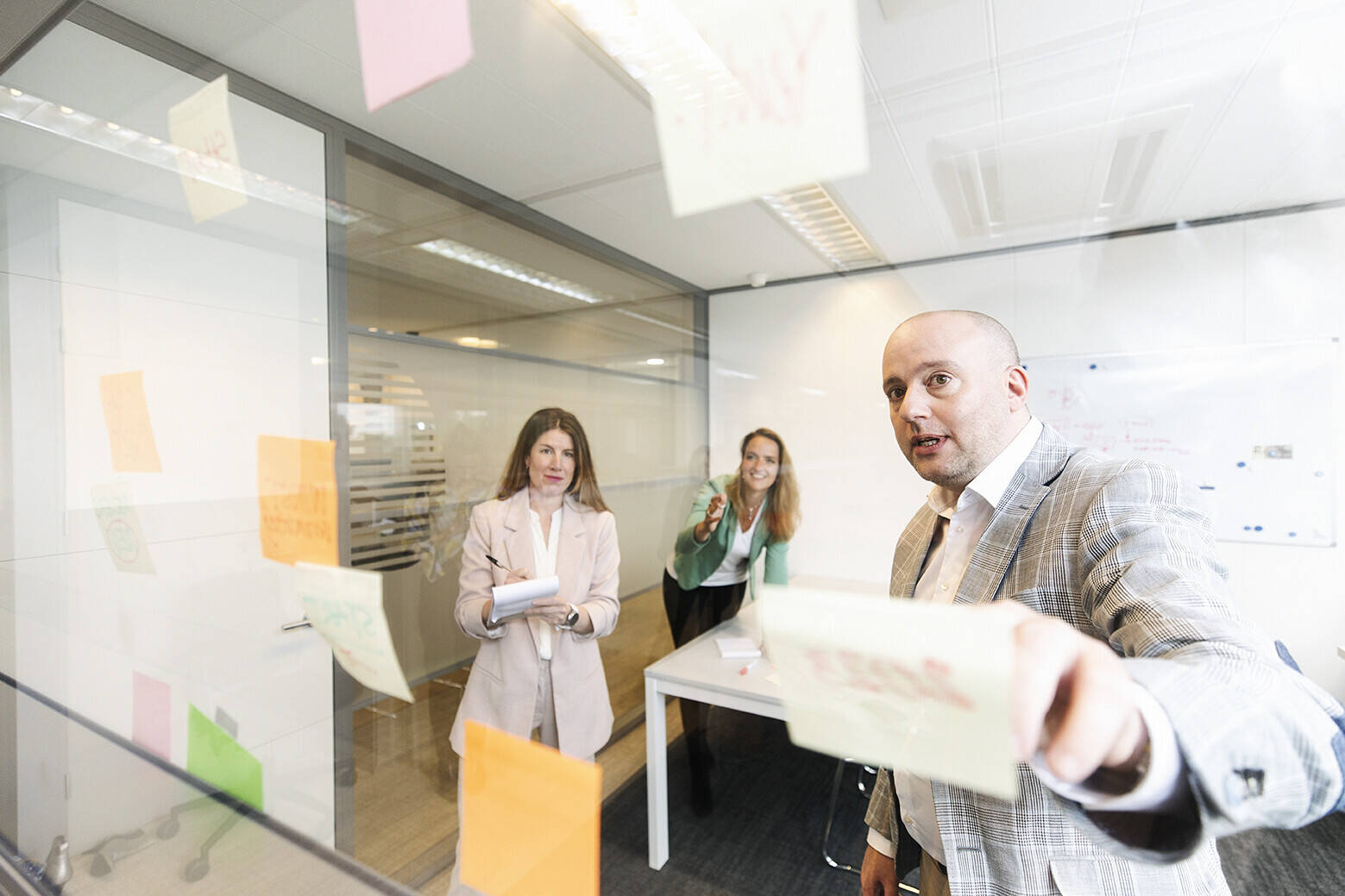Read more


Introduction



Table of contents
6. GGrowth, health, and well-being of employees (career development, training, prevention)
5. Ethical business practices and anti-corruption (transparency, whistleblower protection)
4. Cybersecurity and data privacy (protection against cyberattacks, ethical handling of data)
3. Fair and diverse work environment (equal pay, inclusion, social rights)
2. Sustainable employability of employees (working conditions, absenteeism, work-life balance)
1. Climate change (CO2 reduction, energy efficiency, sustainable procurement)
We look at sustainability
from multiple perspectives
We therefore report transparently on Environmental, Social and Governance (ESG) topics. We are committed to climate-neutral operations by 2035 (scope 1 and 2) and we set clear targets for social and governance topics, such as diversity, fair pay and privacy. This report shows the steps we are taking and uses the structure of the Corporate Sustainability Reporting Directive.
Our focus on themes that really matter
When defining Meijers' sustainability strategy, a dual materiality analysis is carried out. This means that we look at sustainability from two perspectives: what impact does Meijers have on the environment (e.g. through good employment practices), and what impact do sustainability themes have on Meijers (e.g. through increasing climate risks)?
Since 1973, Meijers has been a leading insurance broker with a strong team of around 500 employees. We are a family business, so generational thinking is in our DNA and defines our vision and way of working. At Meijers, sustainability goes beyond environmentally aware entrepreneurship, it also includes social responsibility and transparent governance. We invest in a future in which we are not only financially healthy, but also make a positive contribution to our environment, employees and customers.
When conducting the double materiality analysis, we consulted stakeholders (including business partners, customers and employees) and identified the most important themes for our company. These are:

Introduction


6. Growth, health, and well-being of employees (career development, training, prevention)
5. Ethical business practices and anti-corruption (transparency, whistleblower protection)

Table of contents
4. Cybersecurity and data privacy (protection against cyberattacks, ethical handling of data)
3. Fair and diverse work environment
(equal pay, inclusion, social rights)
2. Sustainable employability of employees (working conditions, absenteeism, work-life balance)
1. Climate change (CO2 reduction, energy efficiency, sustainable procurement)
When conducting the double materiality analysis, we consulted stakeholders (including business partners, customers and employees) and identified the most important themes for our company. These are:
We look at sustainability
from multiple perspectives
We therefore report transparently on Environmental, Social and Governance (ESG) topics. We are committed to climate-neutral operations by 2035 (scope 1 and 2) and we set clear targets for social and governance topics, such as diversity, fair pay and privacy. This report shows the steps we are taking and uses the structure of the Corporate Sustainability Reporting Directive.
Our focus on themes that really matter
When defining Meijers' sustainability strategy, a dual materiality analysis is carried out. This means that we look at sustainability from two perspectives: what impact does Meijers have on the environment (e.g. through good employment practices), and what impact do sustainability themes have on Meijers (e.g. through increasing climate risks)?
Since 1973, Meijers has been a leading insurance broker with a strong team of around 500 employees. We are a family business, so generational thinking is in our DNA and defines our vision and way of working. At Meijers, sustainability goes beyond environmentally aware entrepreneurship, it also includes social responsibility and transparent governance. We invest in a future in which we are not only financially healthy, but also make a positive contribution to our environment, employees and customers.










